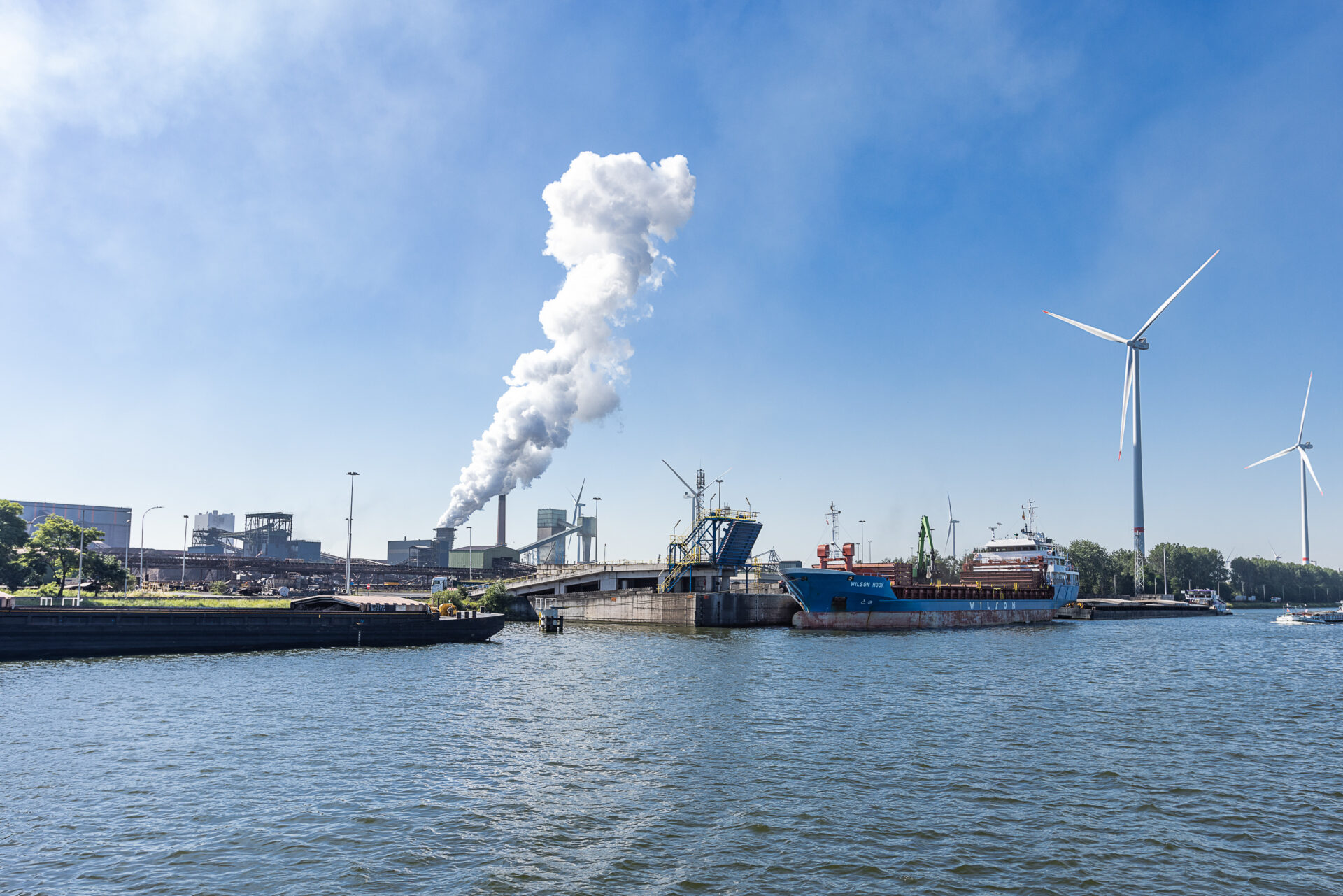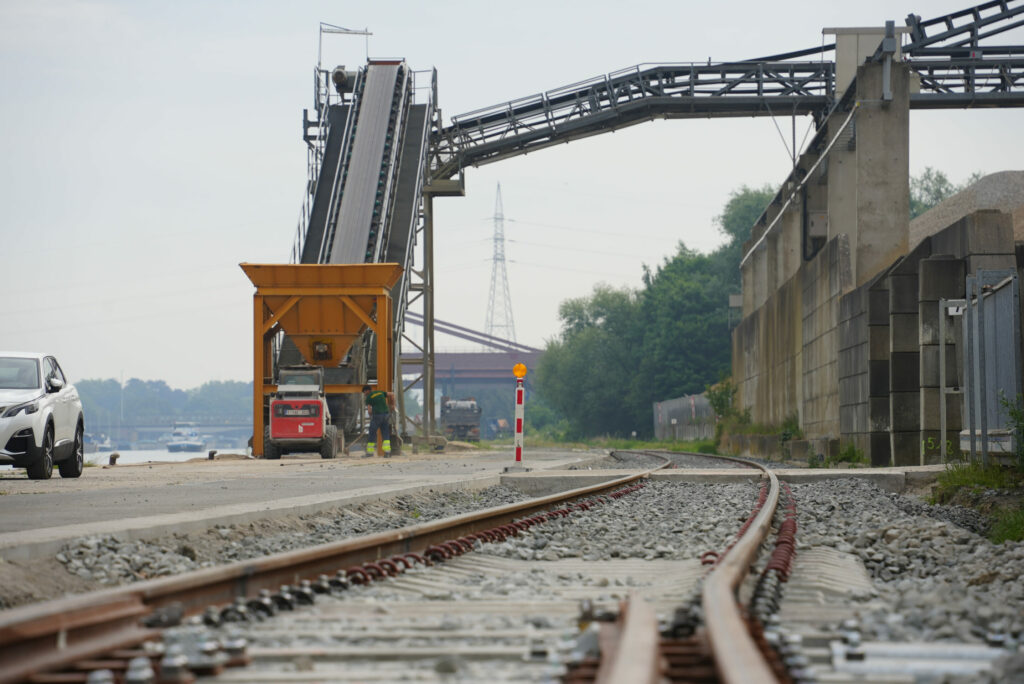Belgium's North Sea Port is facing "challenging" recruitment issues, with businesses in the area reporting thousands of vacancies, resulting in a barrier to both the climate transition and business growth.
The North Sea Port stretches 60 kilometres across Belgium and the Netherlands, from Vlissingen on the Dutch coast to the Port of Ghent in Belgium. Some 550 companies operate in the area, including heavyweights ArcelorMittal and Volvo on the Flemish side. In total, around 102,000 people are employed in the area.
Silvie Lefebre is Director of North Sea Port Talent, a project launched a year ago by Flanders and the Netherlands to help tackle recruitment challenges in the port. She tells The Brussels Times that there are currently around 6,000 vacancies across the Port.
"[Candidates] for technical jobs are very hard to find. There aren't many students training to work in these fields and the need is much bigger than new entrants to the labour market," she explains.
The North Sea Port Talent project has received more than €2.8 million in EU funding to help address skills shortages, through initiatives such as recruitment days and creating an online jobs and education portal specifically for the North Sea Port.
Lack of awareness
As well as the shortage in technical and logistics roles that are commonly associated with ports, Lefebre says they also struggle to attract candidates for other jobs who may not be aware of the opportunities within the North Sea Port.
"Many people think that jobs in the port are all about blue collar workers and logistics. But whilst logistics is of course very important, there's a lot of industry as well. You have several canals that join from the North Sea which makes it a strategic location for companies. It isn't only typical 'port work'," Lefebre says.
There are also many opportunities in the sustainability sector as the North Sea Port has set ambitious goals for climate neutrality by 2050. It also asks companies in the area to invest in sustainability. Lefebre says that the port is a hub for innovation and projects to boost climate neutrality: "We try to tell people that if you work here, you can be part of the solution. That's really important."

ArcelorMittal site in Zelzate, part of the Port of Ghent. Credit: Belga / James Arthur Gekiere
Demographic challenges
Demographic changes in Belgium are also complicating recruitment in the area. "We are all getting older and fewer people are entering the labour market. That plays a big part in why we don't have enough people. If you have one hundred people retiring, you only have 80 according to the latest figures."
Faced with the demands of the climate transition, Lefebre says that the port will need to recruit thousands more workers on top of the 6,000 current vacancies. And besides impeding progress on climate targets, the talent shortage also prevents economic growth in the North Sea Port. "Because [companies] don't have enough people, they have to make certain decisions. Sometimes they decide to reduce their output because they lack the staff."
"Of course, digitalisation is one solution but it won't come in one year. It takes investment, and you will always need people to be there with machines," Lefebre adds.
Recruiting from abroad
North Sea Port Talent has looked into recruiting people from abroad but Lefebre says that this is "not so easy" politically. She believes that the next Federal Government could do more to help with recruitment challenges, by streamlining the process of employing foreign workers.
"For example, they could make it easier for expats to get permits, or easier to find housing – that's something that's also a problem for roles where wages are lower. I understand there issues regarding migration but if we want to help companies stay here [in Belgium] then those are important things."
Lefebre also said that incoming governments should try to "find a balance" in terms of regulations, and beware of putting up unnecessary red tape that will lead companies to take their business elsewhere.

